Abstract
A pre- and post-implementation assessment of physician attitudes was undertaken as part of the evaluation of the pilot implementations of an outpatient EMR in 6 practices of a large academic health system. Our results show that these physicians are ready adopters of computer technology when it demonstrates value-added for the effort required to use it. These physicians utilize email, the Internet, remote access to computer systems, and personal productivity software because they serve a valuable purpose in their academic and clinical work and in their personal lives. Much more critical to the acceptance of an EMR by physicians is its ability to facilitate efficient clinical workflows without negative effects on the valued relationships physicians have with their patients--those that are based on rapport, quality of care, and privacy.
Full text
PDF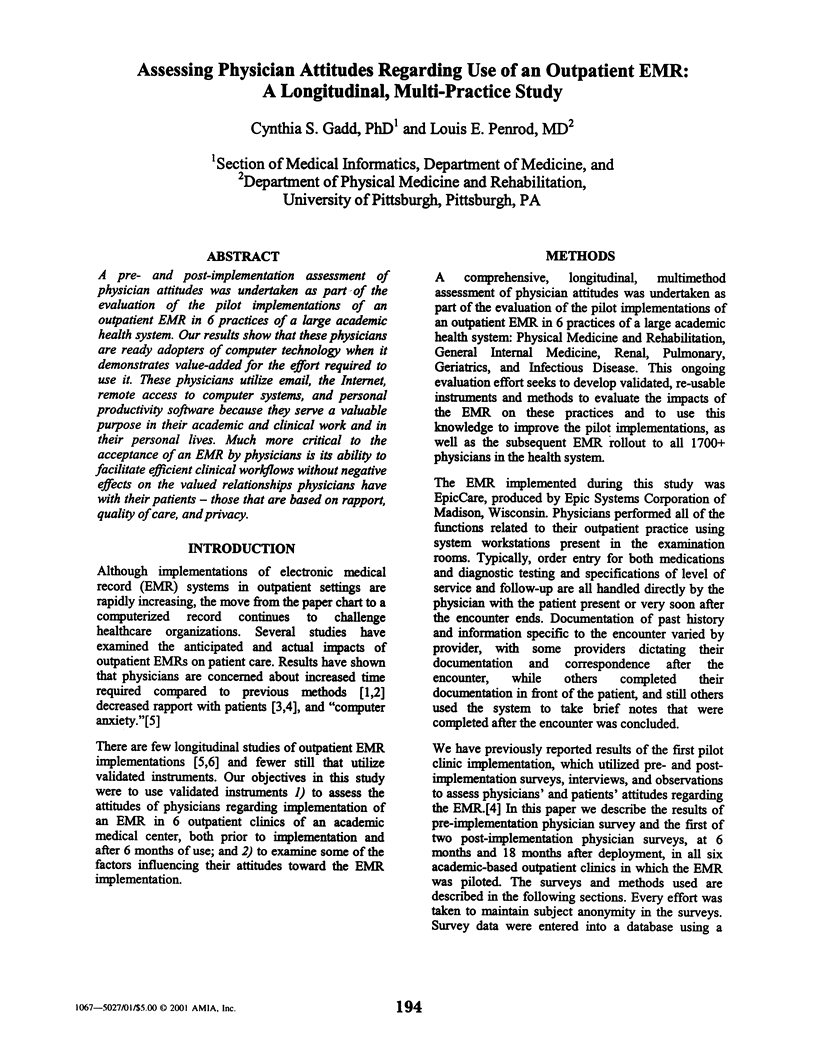
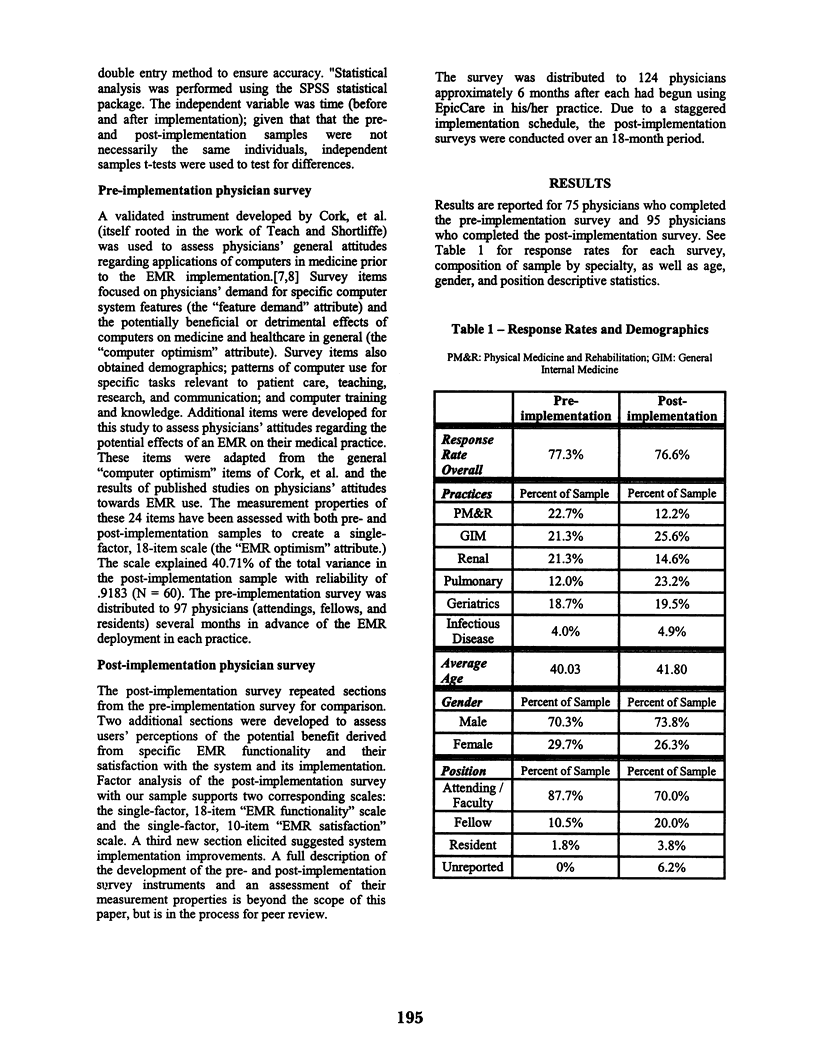
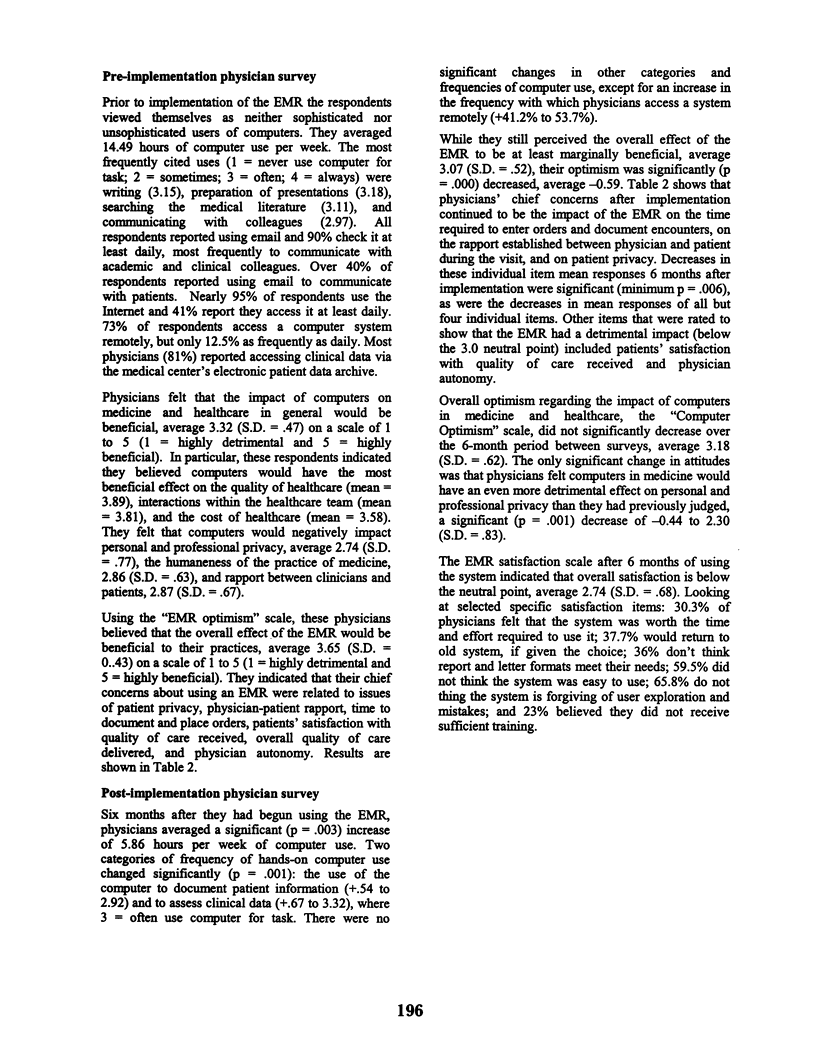
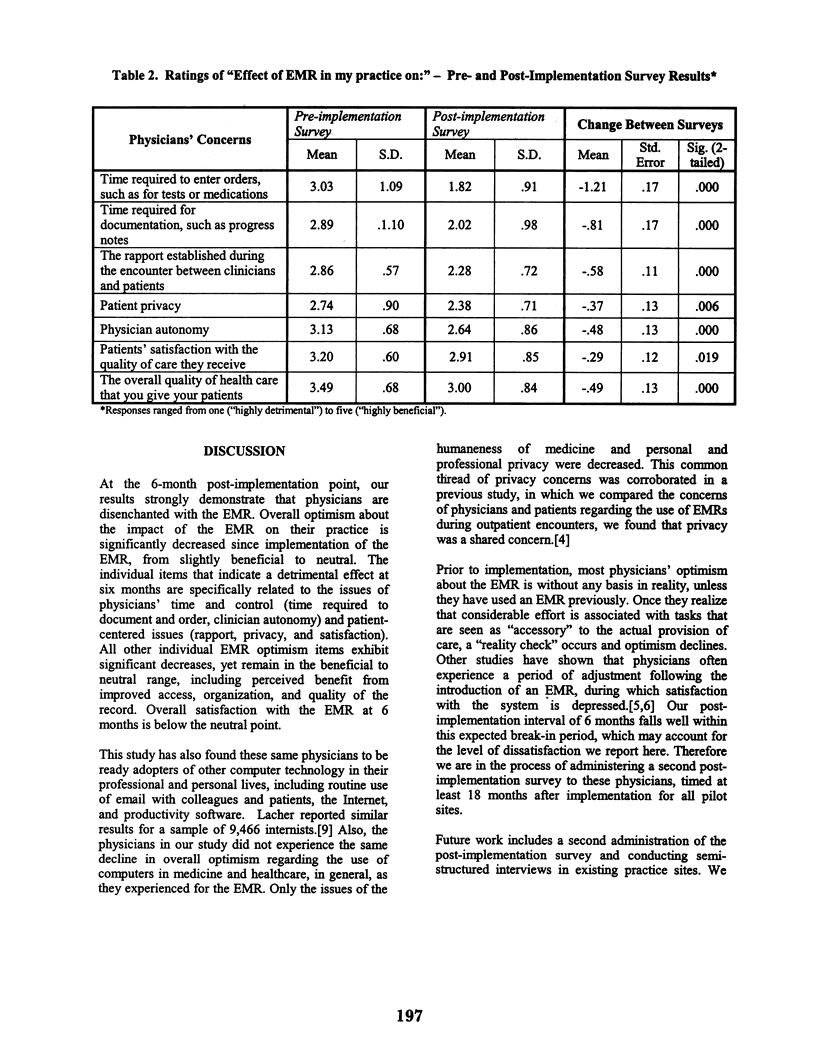
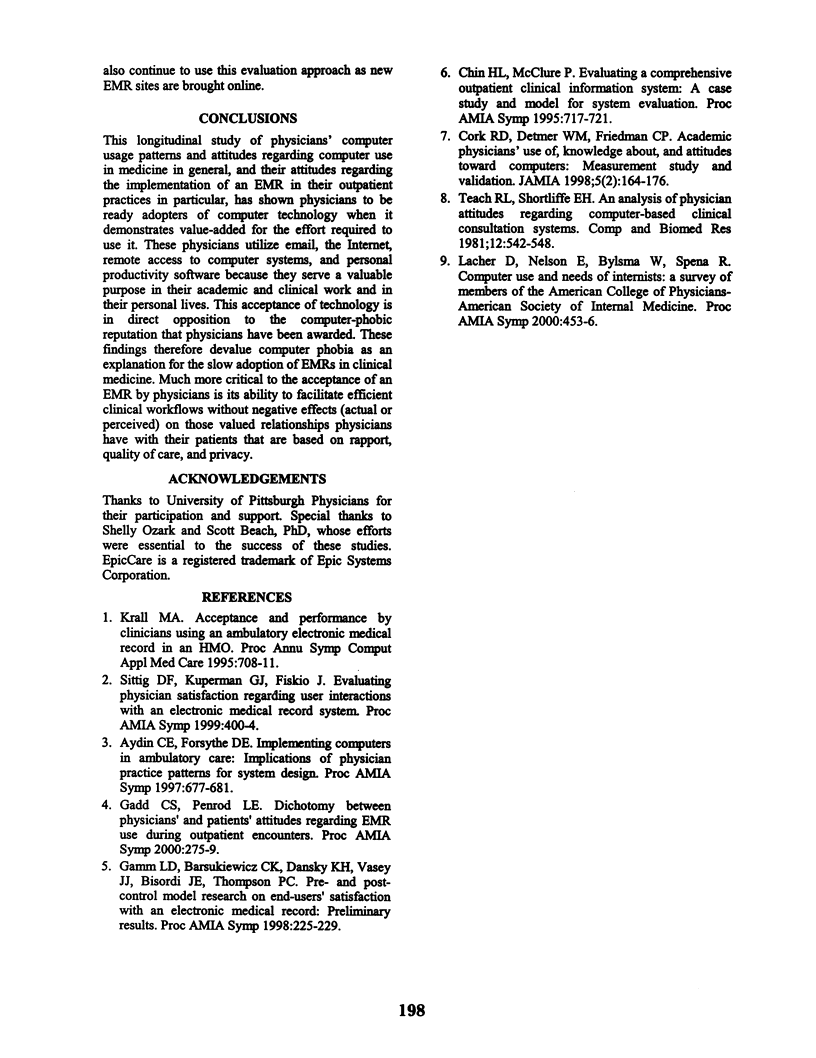
Selected References
These references are in PubMed. This may not be the complete list of references from this article.
- Aydin C. E., Forsythe D. E. Implementing computers in ambulatory care: implications of physician practice patterns for system design. Proc AMIA Annu Fall Symp. 1997:677–681. [PMC free article] [PubMed] [Google Scholar]
- Chin H. L., McClure P. Evaluating a comprehensive outpatient clinical information system: a case study and model for system evaluation. Proc Annu Symp Comput Appl Med Care. 1995:717–721. [PMC free article] [PubMed] [Google Scholar]
- Cork R. D., Detmer W. M., Friedman C. P. Development and initial validation of an instrument to measure physicians' use of, knowledge about, and attitudes toward computers. J Am Med Inform Assoc. 1998 Mar-Apr;5(2):164–176. doi: 10.1136/jamia.1998.0050164. [DOI] [PMC free article] [PubMed] [Google Scholar]
- Gadd C. S., Penrod L. E. Dichotomy between physicians' and patients' attitudes regarding EMR use during outpatient encounters. Proc AMIA Symp. 2000:275–279. [PMC free article] [PubMed] [Google Scholar]
- Gamm L. D., Barsukiewicz C. K., Dansky K. H., Vasey J. J., Bisordi J. E., Thompson P. C. Pre- and post-control model research on end-users' satisfaction with an electronic medical record: preliminary results. Proc AMIA Symp. 1998:225–229. [PMC free article] [PubMed] [Google Scholar]
- Krall M. A. Acceptance and performance by clinicians using an ambulatory electronic medical record in an HMO. Proc Annu Symp Comput Appl Med Care. 1995:708–711. [PMC free article] [PubMed] [Google Scholar]
- Lacher D., Nelson E., Bylsma W., Spena R. Computer use and needs of internists: a survey of members of the American College of Physicians-American Society of Internal Medicine. Proc AMIA Symp. 2000:453–456. [PMC free article] [PubMed] [Google Scholar]
- Sittig D. F., Kuperman G. J., Fiskio J. Evaluating physician satisfaction regarding user interactions with an electronic medical record system. Proc AMIA Symp. 1999:400–404. [PMC free article] [PubMed] [Google Scholar]
- Teach R. L., Shortliffe E. H. An analysis of physician attitudes regarding computer-based clinical consultation systems. Comput Biomed Res. 1981 Dec;14(6):542–558. doi: 10.1016/0010-4809(81)90012-4. [DOI] [PubMed] [Google Scholar]


